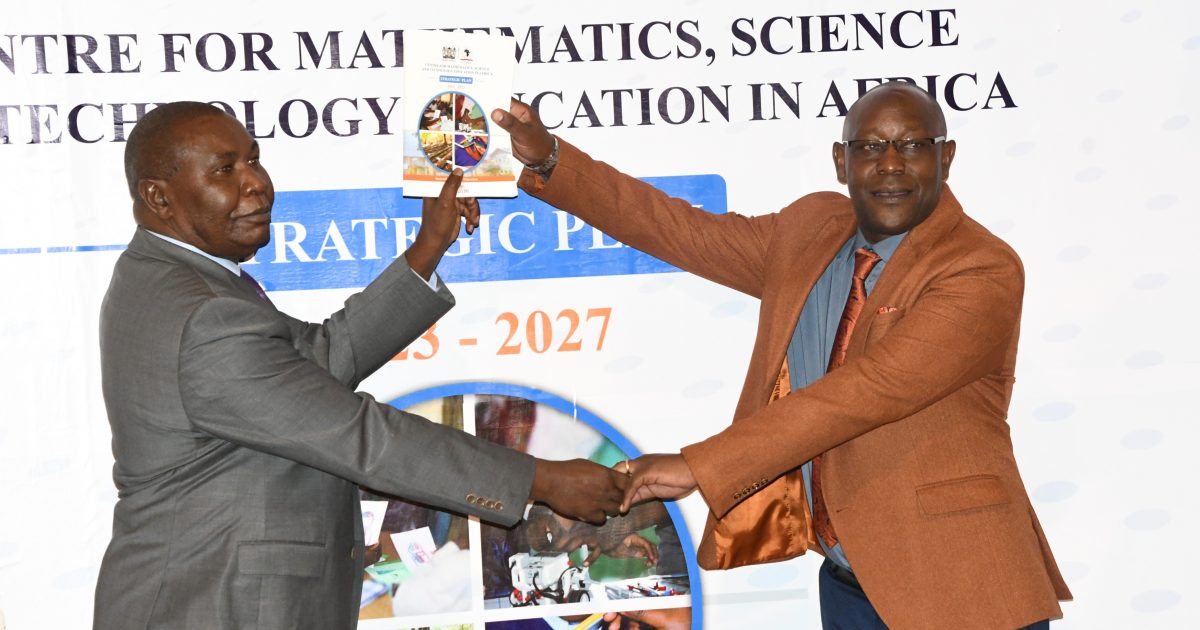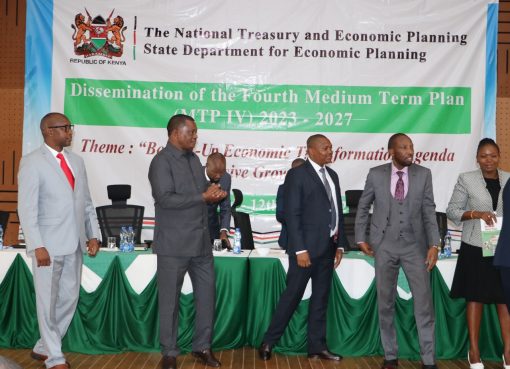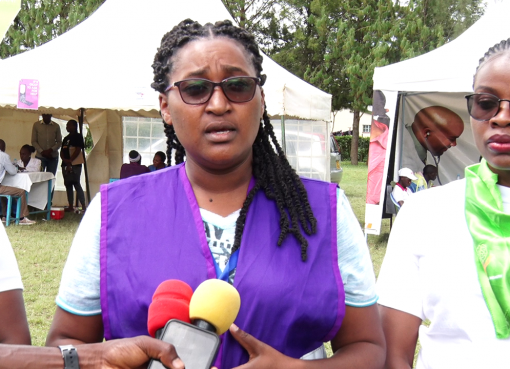Centre for Mathematics Science and Education and Technology in Africa (CEMASTEA) has begun on significant steps towards achieving excellent capacity in developing science, Technology, Engineering, and Mathematics (STEM) education following the launch of the Strategic Plan 2023–2027.
Education Cabinet Secretary Ezekiel Machogu, in a speech read on his behalf by the Director of Projects Coordination in the Ministry of Education, Elijah Mungai, underscored the importance of the 5-year plan in enhancing STEM education and socio-economic development.
The CS said the plan is very crucial in defining CEMASTEA’s role in enhancing STEM education in Kenya as it will address the skill gap crisis existing globally where businesses fail to attract the right talents in STEM-based careers.
Machogu commended the stakeholders for drafting the plan, saying it will revolutionize the education system by enhancing training, research, and innovation.
“We believe, as a sector, that CEMASTEA is one of the key institutions that will revolutionize how STEM education is implemented at the school level,” he said.
CS commended CEMASTEA while urging CEMASTEA to continue providing capacity building for STEM teachers, training curriculum implementers on gender responsive pedagogy, and providing specialised STEM teaching and learning resources.

He revealed that the National Curriculum Policy promotes enrolment in STEM subjects, as reflected in the Basic Education Curriculum Framework, which recommends 60% of learners from Junior School to transition to the STEM Pathway in Senior School.
The CS reiterated the government commitment to supporting and expanding the number of students pursuing advanced degrees and careers in STEM fields by promoting the participation of women and marginalised communities, expanding the STEM-capable workforce, and increasing STEM literacy for all students, including those not pursuing STEM-related careers.
Machogu urged the Board, Management, staff, and stakeholders of CEMASTEA to ensure successful implementation of the Plan to meet high expectations and reflect the institution’s rich experience in the quality of outcomes at the end of the strategic period to boost education in Kenya.
While assuring the government support, the CS said, “I therefore urge the Board, Management, and staff of CEMASTEA, as well as the stakeholders, to spare no effort in ensuring successful implementation of this Plan to enable CEMASTEA to meet high expectations already placed on the Centre.”
CEMASTEA is a Pan-African institution serving Kenya and other African countries. It serves as the official headquarters of the Strengthening Mathematics and Science Education in Africa (SMASE-Africa) Association as well as the Secretariat for the Inter-Country Quality Node on Mathematics and Science Education for the Association for Development of Education in Africa (ADEA ICQN-MSE) on behalf of the ministry.
The government’s Vision 2030 Medium-Term Plan IV, which embodies the Bottom-Up Economic Transformation Agenda (BETA), CS added, prioritises STEM education for inclusive growth. This is a key focus under the Human Capital Development in the Social Sector Pillar, which aims to strengthen STEM skills and reduce the cost of strategic projects requiring expatriates’ expertise.
“Africa and Kenya, included, rely on expatriates to deliver projects that require related knowledge and skills. As a result, investments in strategic projects become expensive,” he said.
The CS said the Ministry has collaborated with CEMASTEA to develop a Sector Policy on STEM Education and Training, to enhance well-coordinated, inclusive, equitable, quality, and relevant STEM education and training.
On his part, Chief Executive Officer (CEO), of the Centre for Mathematics, Science, and Technology Education in Africa (CEMASTEA), Jacinta Akatsa, said the launch of the strategic plan is a well-thought-out and focused move, as it will address the existing gaps and spearhead the Centre into the next high level towards meeting the expectations of the nation and the Centre.

“The strategic plan is very crucial, as it will steer the Centre into the next high level,” she said.
The CEO added that the plan will open new horizons and platforms for the Centre to achieve its mission to provide continuous competencies for sustainable development through STEM education.
Among the strategic goals are enhancing quality teaching and learning, increasing partnerships, linkages, and collaborations, as well as strengthening STEM education, training, and research in Africa for innovative transformation.
She commended stakeholders for developing a sustainable plan that aligns with national development priorities, including Vision 20230, MTP-IV, BETA, SDGs, AU Agenda 2063, and EAC Vision 2050, as it boosts experiential learning, innovation, creativity, and attraction to STEM-related disciplines.
On his part, Director Teacher Professional Management Teachers Service Commission, Dr. Reuben Nthamburi, commended CEMESTEA for developing the plan, adding that it helps transform the education system by enabling the government to achieve the STEM agenda.
Nthamburi pointed out that 60% of the STEM skills are required by the students to succeed in schools, emphasising the need for CEMESTEA to support teachers through upskilling.
Adding that, “We stand with CEMESTEA to ensure teachers succeed”.
By Ian Chepkuto





